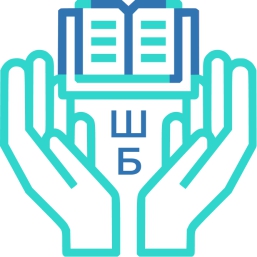Interview with Tamara Mikheyeva, one of the Award judges
We would like to offer our readers this interview with Tamara Mikheyeva, a member of the panel of judges of V.P.Krapivin International Children’s Literature Award – 2010.
“Hello from the country of sunny squirrels”
“In children’s books joy must predominate. Or at least hope.” ~ Tamara Mikheyeva
“Seva, will I now always fly?”
“Until you grow up.”
“And then?”
“Then geranium pollen will no longer be able to lift you. Although… if you don’t grow up too much…”
“How’s that?”
“Well… You know, when they are kids, many people are friends with dwarfs, but then they grow up and say that those were childish games, made-up things. Or they completely forget about it.”
“I will not forget.”
(from Tamara Mikheyeva’s book ‘Asya’s Summer’)
On the photograph Tamara Mikheyeva has a very warm look in her eyes. Unfortunately, I was unable to meet “in real life” with the creator of the magical world populated with fairies, chumsiks, sunny bunnies, kittens, chipmunks, and other wonderful inhabitants. We only talked over email. But the photograph on the main page of this children’s author’s website allows a glimpse into her character. You can see that this is a kind, open-hearted person… a person who hasn’t forgotten.
A.G.: I know that you had started writing when you were still a child. Do you remember what your first creation was about?
T.M.: Yes, I remember it very well. The very first thing I wrote was a school assignment, we were told to write a fairy tale or a story based on the saying, “Haste makes waste.” But that was just homework, nothing serious. I had written a “book” in the 3rd grade, filling out a 48-pages long notepad. It was about some kind of space adventures. I even read it to my younger brother before bedtime. Then I had grown up and reread it; I was horrified, so I threw the notepad away. To be honest, now I regret it a little. It would have been fun to read.
A.G.: Tell us a little about your childhood, about the place where you were born and raised. Wouldn’t that be where your wonderful chumsiks come from?
T.M.: That’s exactly where they come from, all my writings come from there. I grew up in the amazing town of Ust-Katav. It is a small town in Chelyabinsk region, a very beautiful one. My family was remarkable: mom is a community theater director, we grew up at the Culture Center. And dad has worked at a tram making plant all his life, that’s a rather romantic profession in its own way. I have an older sister and a younger brother. And a terrific grandmother, and an uncle and aunt. We’ve got a very close-knit family. You know, it’s hard to tell about my childhood in just a couple of words, but I think it is scattered through all my books.
A.G.: How did your literary career begin and develop? Where did you study?
T.M.: Oh, I don’t know how it began… Probably from that moment when I realized that I want to show someone my writings. I had been terribly shy about my works for a very long time, I’d hide them, I wouldn’t let even the closest people read anything… But one day that moment had come when you suddenly understand that you want it to be read and appreciated, you want to learn to write better… For me, it had happened when I was about 18. I was studying at Chelyabinsk Culture College, to become a children’s leisure activities organizer. That’s something like a youth leader, if you translate it into simpler terms. And during my third year I had realized something: no, I will not continue with this specialty, I will work with literature. So after graduating from college I entered Chelyabinsk University of Education, faculty of philology. But that was not what I wanted, either. Dissecting of the language depressed me; studying literature like a science did not give me joy. And of course the amount of written pages in my desk grew, demanding to go out in the world. But I am very grateful to the university. Not only because I had met my husband there and made good friends (I still fondly remember our class called Sunray); I am grateful because it was there that I finally understood that I wanted to be a writer. After finishing the first year I had quit the university and entered Moscow Literary Institute. But you know, writing career has nothing to do with degrees. It just happened that in 2005 I had gotten in touch with a small publisher called Rimiz, they liked my books and published The Bald Island and Two Roads – One Way. Well, and after that things had started moving… slowly but surely.
A.G.: Of all the awards you have won, the most significant one is probably the Cherished Dream award for Asya’s Summer. I must say I couldn’t put that book down myself. Please share what it was like to work on it.
T.M.: Thank you. :-) Working on Asya’s Summer… It was amazing! For me, it is a special book, because it had just poured out of me. I had been thinking about it all the time, practically every minute. I was on maternity leave, and my little son would wake up at 5 in the morning, he was an early bird. But he would awake and entertain himself, and I just wrote and wrote. The way I had written Asya’s Summer can be described as true inspiration. I haven’t experienced that with any other book.
A.G.: Please tell us about your other awards.
T.M.: Well, I like participating in contests, it cheers me up. :-) One of the most important contests for me was New Prose For Our Children, organized by The Bus children’s magazine and I.E.Voevodsky. Thanks to this competition, I got to see St.Petersburg and met Natalia Dubina, an amazing person and a wonderful children’s author. Natalia has not only become my friend, she has introduced me to the SEIP Fund that hosts annual seminars for young writers. I am also very proud that in 2006 I was included in the short-list of V.P.Krapivin award. I can’t even find words to tell you how important it is for me. I didn’t just grow up reading his books, when I was 12 I had copied one of them, The Dovehouse at the Yellow Glade, by hand, from the Ural Stalker magazine. I just couldn’t bear to part with the story, and the magazine belonged to a library. And because of the award I had met Vladislav Krapivin, visited Caravel, befriended wonderful writers Andrey Shchupov and Elena Gabova…
A.G.: In The Bald Island you have introduced the mythology of a whole nation (species akin to dolphins, kind and brave). Would you please share the story of its creation?
T.M.: I just love dolphins, very much. This book was very hard to write by the way, it had taken me 4 years, and the work went slowly, with difficulty. I had quit several times, I just couldn’t solve the situations I'd made up in the story. But perhaps that’s exactly why I love this book now. It’s a pity that it is not being reprinted.
A.G.: Is it true that the main character of Don’t Betray Me! is based on a real life person?
T.M.: Oh my, you know everything. :-) Yes, she is. Yulka Ozaryonok is a mixture of myself during my school years and a student of mine, Yulia Surkova. We have a lot in common, I think, so that’s how it came about.
A.G.: Do you plan to teach again? Have four years of working at school given you something that you can use as a writer?
T.M.: Oh, lots of things! Inspiration, characters, stories, and above all, friendship with children – that’s the most precious thing. And experience, of course. I even started to look at my own kids differently, with more understanding, I think. But I don’t want to go back to teaching right now. No, that’s not a good way to put it; I just had to choose who I am: a teacher or a writer? I couldn’t combine the two, so I chose the latter.
A.G.: Why children’s literature? What would you say are some special considerations of writing children’s books, compared to adult literature?
T.M.: To me, childhood is just more interesting than anything else. I think it is the most complicated and at the same time the most important season of life, and the rest of the person’s life depends on it.
Specifics of children’s books… I think that in children’s books joy must predominate. Or at least hope. For me it’s a very sensitive subject, because I often encounter this problem of, uh… I don’t even know how to explain it. Let’s see: there are many animated films coming out. Feature length films. But I don’t think that, for example, Shrek is a children’s movie. Sure, kids watch it and love it, but kids are omnivorous. And this movie, generally speaking, is not made for children. At best, it’s for teenagers and young adults. Adults are gradually taking away such areas as animation and children’s literature. That’s why there are so many books now that are kind of like children’s, but in reality they are ABOUT children. They are for adults, although their characters are kids. In these books you can find obscenities, and such dark undertones that, should they get into the hands of a teenager going through a crisis – that would be it, they’d jump off a bridge! I know that many of my colleagues disagree, they believe that it’s good for our trouble-free children to read about beggars, alcoholics, homeless, child prostitution… It may be so, but I think many authors are exploiting these themes. And a child – a child is wired differently, they need hope and light. But here comes another extreme: we just foolishly entertain kids without making them think, feel, and empathize with others. Which is, ultimately, the most important thing.
A.G.: Do you plan to start writing for adults? What age group are your books for?
T.M.: For adults, no, I don’t plan that. To be honest, I do not see myself in adult literature. When I was in the Literary Institute, I studied at Lobanov’s seminar, dedicated to adult literature without any opportunity to write or discuss children’s stuff. And during my 6 years there I understood that adult literature is not my thing. As to my books’ age group, I honestly do not know. I hear that Asya’s Summer is being read by six-year-olds and by adults.
A.G.: What children’s writers are you friends with?
T.M.: Shall I list all the names? It would take a long time. :-)
A.G.: As far as I know, the current situation with children’s literature is rather complicated. Parents raise their children on classics (Bianki, Krapivin, etc.), they do not know new authors. Why is that?
T.M.: I think it’s because children’s book reviewing is virtually non-existent. Remember, there used to be a wonderful magazine Children’s Literature? There is nothing like that today, and the government does not seem to think that children’s literature should be taken seriously. It’s on the periphery of the literary process, as something not worth much attention. No wonder that parents prefer classics. Classic books are well known and tested, while new authors are many and it is hard to determine which ones are good. Of course, there is a wonderful site BiblioGuide, dedicated to children’s literature, but not many people know about it, only true book enthusiasts. There is no common resource for everyone.
A.G.: I know that you are a member of children’s writers group The Y Island. The group promotes new children’s literature. What exactly do you do?
T.M.: We travel to different cities, meet with kids, teachers, librarians, tell them about what’s happening in children’s literature, talk about classics as well as introduce our own books. It is important for children to have face-to-face fellowship with authors, to see that writers are not dusty portraits in literature class but living people. When they see that, perhaps their interest to books will grow, and that is our goal. Today there are 15 of us in the group, and, to be honest, we are very selective about our members. :-) We’ve had literary expeditions to Crimea, Chelyabinsk, Karelia, Finland. For us as new authors such meetings are very important. And we have seen that readers are interested in them as well.
A.G.: Who are your favorite children’s authors? And why?
T.M.: I like Yury Koval, Radiy Pogodin, Vladislav Krapivin, Astrid Lindgren, Tove Jansson… How can one explain why they love something? I just love them, that’s all. :-)
A.G.: Many criticize Harry Potter by J.K.Rowling, but you like it, from what I’ve heard. What do you think are the merits of Harry Potter books?
T.M.: Yes, I do have great respect for this book. It has a lot of merits, in my opinion. The engaging plot (one can criticize all they want, but you can’t put it down!), many fresh, interesting, deep thoughts that are understandable and important to a child. And the very fact that Rowling hooked children on reading? For that alone she deserves a monument! I also like how the love for this book can unite children and parents. It’s the copycats that I disapprove of, all those Tanya Grotters and such. I think they are riding the wave of another person’s fame and success.
A.G.: It’s a given that literature must nurture the child. When you work on a book, is this the primary goal you set?
T.M.: Honestly? I don’t set any goals when I work. I just write. When I reread it later, I might notice something – aha, I’ve put this in here; but in the process of writing I can’t follow any agenda, I’m just telling a story. I do understand that it might be fundamentally wrong, but that’s the way it is, and I don’t want to go against my creative nature.
A.G.: What principles do you follow raising your own children? They must be the first readers of your manuscripts?
T.M.: What principles do I follow… I just try to build normal human relationships with them, based on trust and respect. I try not to lecture my kids but simply live with them, in such a way that they feel protected and happy, that they know the very basic things – don’t take advantage of those who are weaker; every person has the right to be themselves; don’t do to others what you wouldn’t want to be done to you… and so on.
I don’t know how it happened, but my sons haven’t read any of my books yet. We read mostly classics. Of contemporary authors, we love Svetlana Lavrova and Elena Rakitina. My oldest son rereads their books several times, always with great pleasure.
A.G.: How do you manage to balance domestic chores and writing? Do you have a work schedule?
T.M.: Well, I’ll be honest: domestic chores suffer from my writing. :-) I am a bad housekeeper, I hate to clean and cook, and if I’m writing a book the house falls into desolation. :-) I am fortunate that my family is rather forgiving about it.
I don’t have a schedule, although I want to. But I work the best in the morning, I am a morning lark.
A.G.: How do you write, by hand or typing on the computer?
T.M.: It differs from time to time. I do type on the computer, especially my latest books, but Two Roads – One Way, The Bald Island, Summer Tales, and Asya’s Summer were all written by hand. When I wrote them I did not have a computer yet. I also like to write on the road and I travel a lot, so I always have a pen and paper handy.
A.G.: Every author probably has a favorite book of their own. Which one is yours? Perhaps you have a favorite character? Or a character who is a lot like you?
T.M.: The book is probably Asya’s Summer. As to characters, they are all favorites. When I write a book, I am fascinated with every one. :-)
A.G.: Where can one purchase your books?
T.M.: My new book Don’t Betray Me! has been published by Akvilegia-M, with terrible design that stupefies me; but the good part is that I hope it will be available in all stores. Summer Tales and Asya’s Summer can be bought at Marina Volkova Publishing House in Chelyabinsk; I am not sure whether they work online right now or not. The Bald Island and Two Roads – One Way had sold out a long time ago, and I don’t know when they will be reprinted. My short stories are included into the anthology How Good! by DETGIZ, it is being sold everywhere.
A.G.: How soon will you treat your readers to something new?
T.M.: I don’t like to hurry. I keep writing, but I don’t know how soon I will finish the book.
A.G.: You have just returned from Lake Baikal. Please tell us about the trip. Have you brought back any story ideas?
T.M.: Baikal is beautiful. Everything you have heard and read about it – “the biggest,” “the cleanest,” “cosmic lake” and so on – it’s all true. You know, for some reason it never happens for me that I travel somewhere and bring back a story idea. I need a lot of time to rethink things. Perhaps I will write something later on and realize that it comes from Baikal.
A.G.: A personal question… You have a beautiful and, most importantly, catchy last name – Son. Yet you sign your works by your maiden name, Mikheyeva. Why?
T.M.: That’s a legitimate question, especially since people often get confused… “Son” is my married name. It is a common Korean name, and at first I had seriously considered getting published under it – exactly because it is beautiful and catchy. But when I started contacting publishers, everyone (honestly, everyone!) who heard such a name thought that it was a penname, and I was this sentimental damsel writing poetry on pink paper. :-) Later on I had come to the conclusion that it would be more appropriate to publish under my maiden name, because if it wasn’t for my parents who always support me, perhaps I would have never become a writer.
Interviewed by Alexandra Gazizova
















